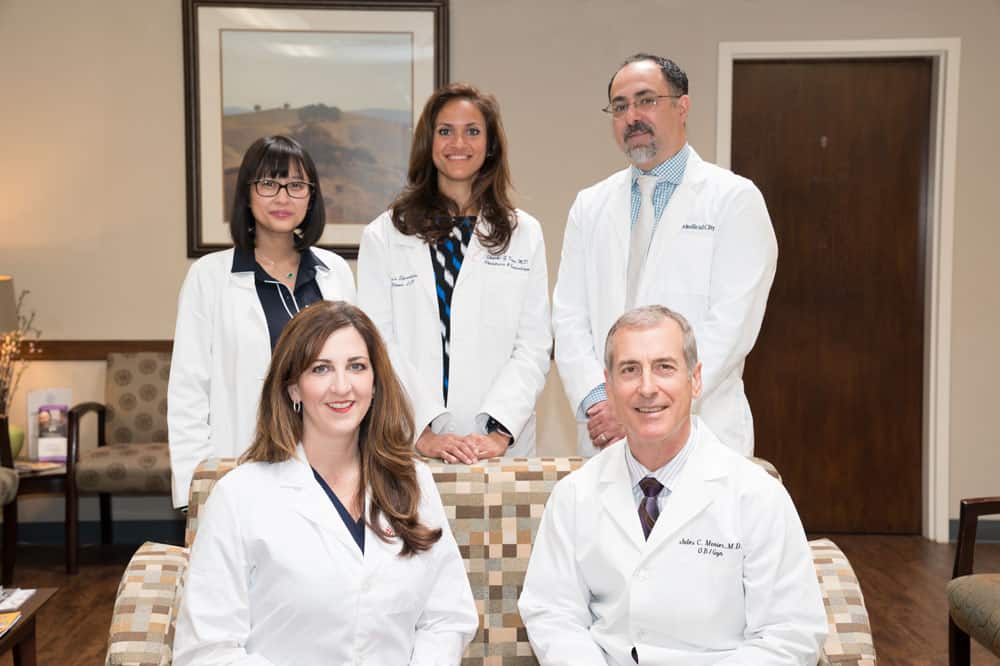Endometriosis Specialists

Endometriosis is primarily a disease of the reproductive years, although it can occur before periods start and after menopause. The Plano, Frisco and Dallas, Texas area physicians at Women’s Specialists of Plano strive to treat women affected by endometriosis, a painful gynecologic disorder, with the most innovative endometriosis treatments available. Contact the WSOP team today!
Endometriosis Overview
Endometriosis is the formation of tiny pieces of uterine lining or endometrial cells outside the uterus and occurs in five to ten percent of women. The cells, which are still responsive to hormones, grow on the ovaries, fallopian tubes and other abnormal sites, causing various levels of pain. Endometriosis is primarily a disease of the reproductive years, although it can occur before periods start and after menopause. The Plano, Frisco and Dallas, Texas area physicians at Women’s Specialists of Plano strive to treat women affected by this painful gynecologic disorder with the most innovative endometriosis treatments available.
Endometriosis is still not well understood. The most popular explanation for why it happens is retrograde menstruation. Simply, this means backwards menstrual flow that spills out of the fallopian tubes into the pelvis. The tissue, still under the influence of cyclic hormones, bleeds and increases in size, sometimes forming cysts. However, retrograde menstruation does not explain the entire spectrum of the disease, such as instances in which endometrial tissue has been found in the lung or even the nose. Another theory, called “coelomic metaplasia”, maintains that peritoneal epithelium – the cells lining the abdominal cavity – can be “transformed” into endometrial tissue.
Endometriosis Symptoms
The most common symptom of endometriosis is recurrent pelvic pain. The intensity of pain varies between women. The intensity of pain varies between women. Other common symptoms include:
- Dysmenorrhea: painful, sometimes disabling menstrual cramps
- Dyspareunia: painful sex
- Dyschezia: painful bowel movements
- Dysuria: urinary urgency and frequency, sometimes painful voiding
- Nausea, vomiting, or diarrhea – particularly when associated with the menstrual period
- Frequent or short menses
- Heavy or long menstrual periods
- Mood swings and fatigue
Endometriosis Associated Infertility
While endometriosis does not usually affect fertility, it is possible that patients struggling with infertility have unknown endometriosis. Sometimes your doctor will recommend a laparoscopy surgery to investigate that possibility. Endometriosis can lead to anatomical distortions, such as blocked tubes or scar tissue build up. It has also been suggested that the endometriosis lesions release factors which are harmful to developing embryos. All the physicians at WSOP are very experienced and skilled at removing and treating endometriosis via robotic or laparoscopic surgery.
Endometriosis Diagnosis
Physical examinations may lead a physician to suspect endometriosis, and ultrasounds or MRIs might identify large endometriotic areas, such as nodules or cysts. However, these imaging tests usually cannot identify endometriosis or scar tissue; therefore, laparoscopy is the only method for a complete confirmation and diagnosis. Laparoscopy also allows for surgical treatment of endometriosis.
Endometriosis Treatment
There is no cure for endometriosis; rather, the main goal is to provide pain relief and treat infertility, if present. In many patients, menopause (natural or surgical), will abate the process, as the hormones will no longer affect the tissue. In women still seeking to become pregnant, treatment is conservative, though it can include surgical removal of the tissue. For those who do not wish to become pregnant, endometriosis treatment includes:
- Hysterectomy and/or removal of the ovaries
- Lupron injections to induce temporary menopause and reverse the growth of endometriosis lesions
- Non-steroidal anti-inflammatory drugs (NSAIDs)
- Progesterone or Progestins: to counteract estrogen and inhibit the growth of the endometrium
- Oral contraceptives
If you live in the Plano, Frisco and Dallas, Texas area and have concerns that you may be suffering from endometriosis, or would like more information on endometriosis treatment, please contact the office of Women’s Specialists of Plano today.
